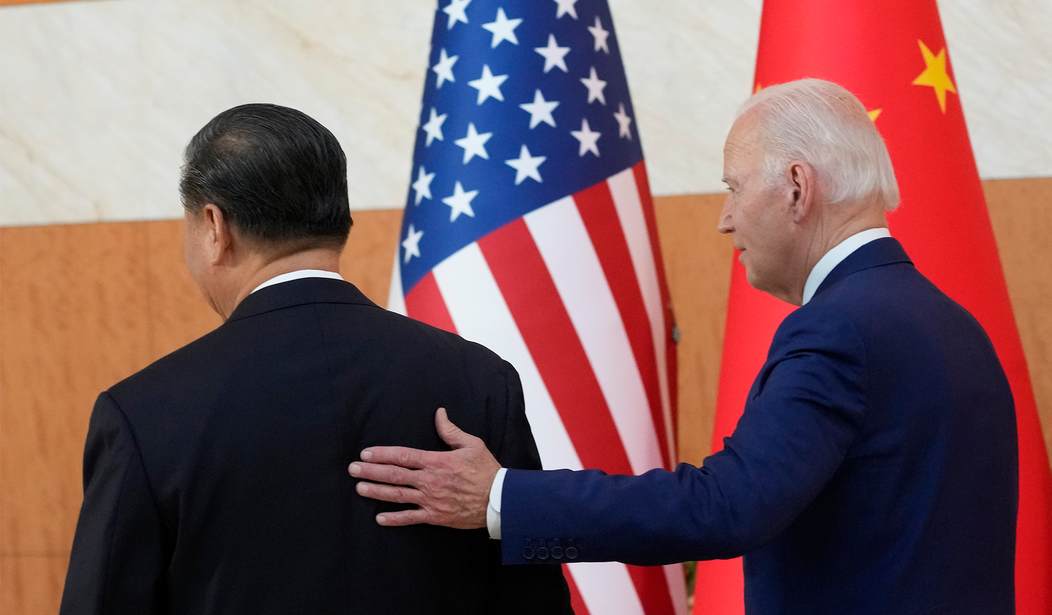"China is coming to the end of an era" of easy and rapid growth, warns Cambridge political economist John Rapley on Unherd this week, and it "faces an economic evolution as profound as the great opening-up presided over by Deng Xiaoping." To that I'd have to add, "Welcome to the party, pal."
Before I explain the "Die Hard" reference, you need to see how China has become so deeply weird — a still-developing economy with all the baggage of a fully developed economy like ours.
Rapley noted in his Unherd essay that "after peaking just before the 2008 global financial crisis, the country’s growth rate has been trending downwards," much like ours. Beijing's response to each downturn since then has been a short-lived "sugar rush" of stimulus spending and lending (sound familiar?) that saddles the economy with excesses of goods and property developments.
It's one of the great absurdities of this most absurd of centuries. Communist China borrows money to stimulate the economy. Once stimulated, the economy suffers from excess capacity — steelmaking, apartment buildings, entire cities — that drags the economy into another downturn. The solution? More stimulus, of course.
Is this how the world's second-largest economy operates — or is it a Monty Python sketch? It can be so difficult to tell some days.
So what's our excuse? There's no way to be certain how much of our economic growth since 2008 has been mostly illusory, financed by stimulus and borrowing that will drag on the economy for decades, but it is substantial. That pretty much explains the "Die Hard" reference.
But China, as Rapley wrote, "still has a long way to go before it can deliver rich-country standards of living to its people, [and] it’s running into some of the same barriers to growth as Western countries... an aging population, slowing workforce growth, [and] rising debt."
If you're going to get stuck on a broken elevator, I suppose, it's better to be stuck near the fancy penthouse on the top floor than on the maintenance level.
As compelling as I found much of Rapley's essay, here's where we parted ways:
For decades, the rest of the world was happy to be a sink for Chinese products. In fact, the outsourcing of production to China helped reinvigorate Western capitalism. And although this helped to accelerate the relative deindustrialisation of many Western countries, the losses were offset in the disinflation imported from China. Falling inflation, in turn, not only kept the cost of living down but allowed interest rates to fall, making credit cheap and fuelling property booms in the West.
In the last 20 years, we'd have been much better off with less cheap credit and the accompanying property booms — and busts. Or as another British economist, Niall Ferguson, quipped (I'm paraphrasing a bit), China and the U.S. were like one of those unhappy dysfunctional couples where one partner does all the hard work and savings, while the other does all the fun spending. Chinese savings and eagerness to export cheap consumer goods financed the illusory happy times we've enjoyed in between our various crises since 9/11/2001.
Codependent, too. Beijing's bad decisions and exports-uber-alles policies enabled Washington's bad decisions and easy-money-uber-alles attitude.
Having partly deindustrialized, we're in a trap of our own. We now have two generations of college kids whose access to easy credit made it seem like a good idea to pursue low-reward degrees while generating high amounts of debt. Meanwhile, attendance in STEM studies stagnates, even though engineering and the sciences lead to the innovations that make nations richer. China, meanwhile, awards more engineering degrees each year than we have engineers in total.
It does occur to me though that, like all those empty cities and excess factories, China might be producing more engineers than any country could find engineering jobs for. I suppose that's one of those "high-class problems" to have — or maybe engineers will be China's next big export to the West. But I digress.
Rogé Karma believes that "the age of easy money is over and that's a good thing." If he's right about the former, then the latter follows as night does day. Zero Interest Rate Policy (ZIRP), Karma writes, was "the product of a crisis that our leaders failed to solve." But to avoid another disaster, the transition back to sanity will require difficult choices and wise politicians.
Uh-oh.
China has its strengths and weaknesses, just as we have our own. But our rival nations share one tragic flaw: neither has leadership worthy of its people — and the butcher's bill for Beijing's and Washington's shortsighted decisions is coming due.
Recommended: Antisemitic Mob Shows Up for Biden Fundraiser, Vandalizes Jewish Neighborhood










Join the conversation as a VIP Member